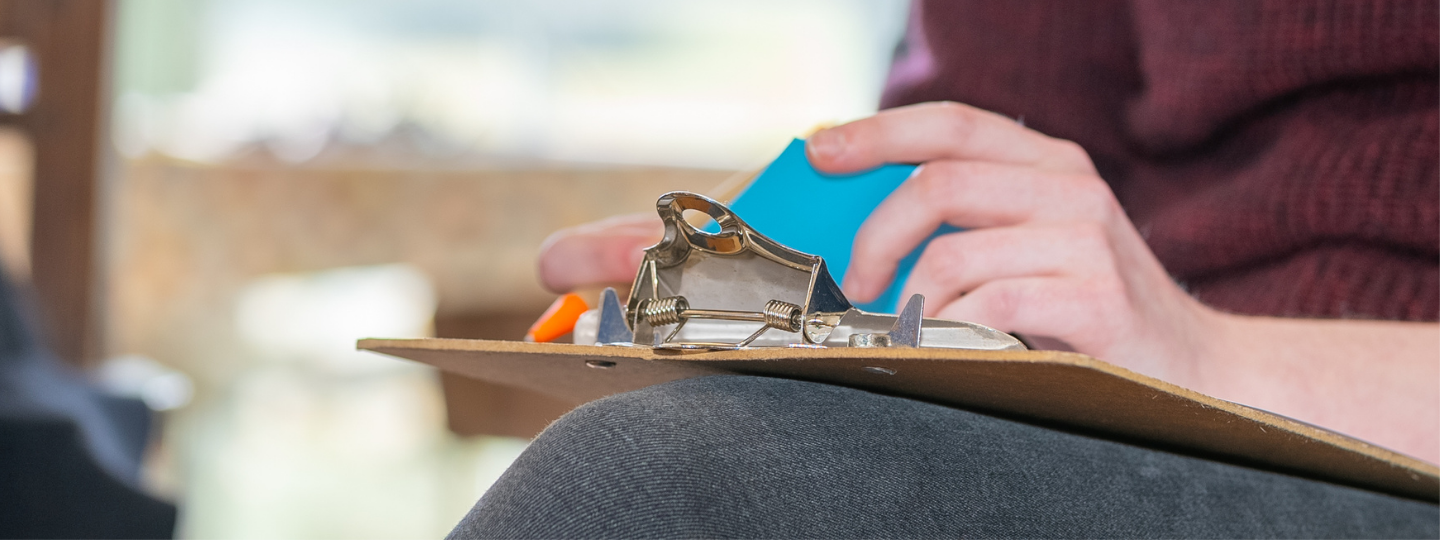Racism and mental health
Racism and mental health
Tuesday, 19 January 2021
Although Ireland is known for being friendly and welcoming, racism does happen here.
Too often in Jigsaw we hear from young people about the negative impact racism has on their mental health. We hear of experiences ranging from discrimination to physical violence. It’s important that we are aware of the impact of this and act to challenge racism when we can.
Jigsaw is part of the Irish Network Against Racism. We are committed to challenging racism and supporting young people who are affected by it.
What is racism?
Racism is the belief, attitudes, behaviors, and approaches that degrade, belittle and devalue groups of people based on the colour of their skin, ethnicity, or racial background. Racism is not OK.
In Ireland, racism can be seen through obvious actions like hate crimes, race-based face to face or online bullying. It can also include microaggressions, seemingly small insults that may not be intentional. For example, a teacher not bothering to learn the correct pronunciation of a student’s name.
>> Find out more about racism in Ireland by reading this report by the Irish Network Against Racism
Racism and mental health
People from ethnic minority groups, including Irish travellers, often experience stereotyping and discrimination. This can lead to being treated negatively, refused opportunities or not included. It can affect equal access to basic rights and resources such as housing, health care, education and employment. Not surprisingly, this can have an impact on mental health.
Feelings of anxiety
Uncertainty can lead to feelings of anxiety. We are not in control of when or how they may experience racism. The uncertainty of how other people are going to react can lead to heightened stress or worry.
If you have had an experience where you were hurt, threatened or harassed as a result of someone’s racist behaviour, it makes sense that you might experience feelings of anxiety. The longer racism goes unaddressed, the bigger this anxiety can get.
Impact on self-esteem
It can be difficult to not be affected by negative statements that are repeated through the news, in public or by peers. Continually hearing adverse comments about our race, culture, or image can take a toll on our mental health. Negative evaluations may become internalised and can negatively influence our self-worth.
For example, the media and advertisements predominantly use images of people with fair skin, light eyes and thin bodies as the beauty ideal. If that doesn’t represent us, or anyone in our racial community, we might come to dislike our image or feel that we’re not attractive or worthy.
Feelings and emotions
Experiencing ongoing prejudice and unfairness can lead to a sense of not belonging in the society that you live in. Feelings of confusion, shame or guilt can happen. These are heavy emotions impacting low mood.
Through racism, loss of opportunities, loss of culture, or lives, can lead to unresolved grief or unexpressed anger. These emotions can get stored up and turned inward.
Some people may emotionally numb themselves to deal with the ongoing challenges, and then find it difficult to respond to either opportunities or problems as they present.
Because racism is so embedded in different aspects of life, it can be hard to imagine how life could be different. Understandably, all this can contribute towards low mood and a negative view of life.
Avoidance and isolation
At different points in life, we may have avoided stressful situations so we wouldn’t have to deal with the physical sensations, negative thoughts or emotions. It seems to make sense that avoiding a situation where we have experienced racism before would be a way of self-preservation.
This means that people who experience racism may end up being excluded, isolating or avoiding meaningful activities or opportunities because of people or places that demonstrated racism. This can reduce quality of life, social and vocational opportunities.
A young person does not need to experience racism directly to be affected by it. It can be distressing when it is experienced by a family member, friend, or in their community.
What now?
We know that social factors such as inequality, racism and marginalisation have negative effects on mental health. But, what can we do about it?
Responding to racism
There is no rule book on how any of us should respond to racism. When and where it occurs, who we are with and how we are feeling can all have an impact on our response. Choosing to respond directly in the moment, taking some time to decide what to do are equally OK.
What is meaningful to you? What do you value? By becoming aware of what matters to you and keeping that in the front of your mind, you can make decisions in stressful moments that are in line with your true self.
For example, if you value respect, you may choose to respond to a racist comment with a respectful tone and ask them to clarify what they meant. If you value education, you may choose to use your voice to educate others on why racism’s not OK.
By making choices that are based on your values the harm caused by racism is not ignored, but it allows you to be confident and focus on what’s important to you.
Reporting racism
If you have been the victim of or witnessed a serious crime, we would encourage you to report this to the Gardaí. Regardless of the severity of the incident, reporting racism can help in understanding the prevalence of it and in finding ways to challenge it. Find out more about how and when to report incidents of racism here.
Coping with the impact of racism
Unfortunately, racism can be an ongoing experience. Support your mental health by having a tool kit of strategies to help cope with the impact.
Self-compassion. Acknowledge and accept that whatever emotional responses occur following an experience of racism are understandable and OK.
Affirmation. When other people are racist, it’s because they’re ignorant. Taking care of yourself and remembering who you are re-affirms your own self-image. Practice positive self-affirmation regularly.
Connect. Racism impacts far too many people. Connecting with others who have similar experiences and circumstances can help you to feel less alone.
Self-care. In facing racism and discrimination, it can be easy to lose track of taking care of ourselves. Write down a few options of what helps you relax or feel good and use it as a remind to slow down and take care of yourself.
Social media. Racism unfortunately can be common online, so be mindful of what you spend your time looking at. Limit time spent online if you find yourself feeling worse when you’re done scrolling.
Distractions. Things like painting, funny Youtube videos or podcasts can help you feel good and connect with who you are.
Seek social support. Surround yourself with friends and family members that make you feel good about who you are, and acknowledge the challenges that people experience as a result of racism.
What else can I do?
It’s easy to feel overwhelmed or unsure of what to do when we experience or observe racism. Rather than feeling hopeless about the depth and breadth of the issue, focus on the things that we can do about it. We can’t control the actions of others, but we can consider our own actions, choices and responses.
>> Read more about things you can do about racism in Ireland.






